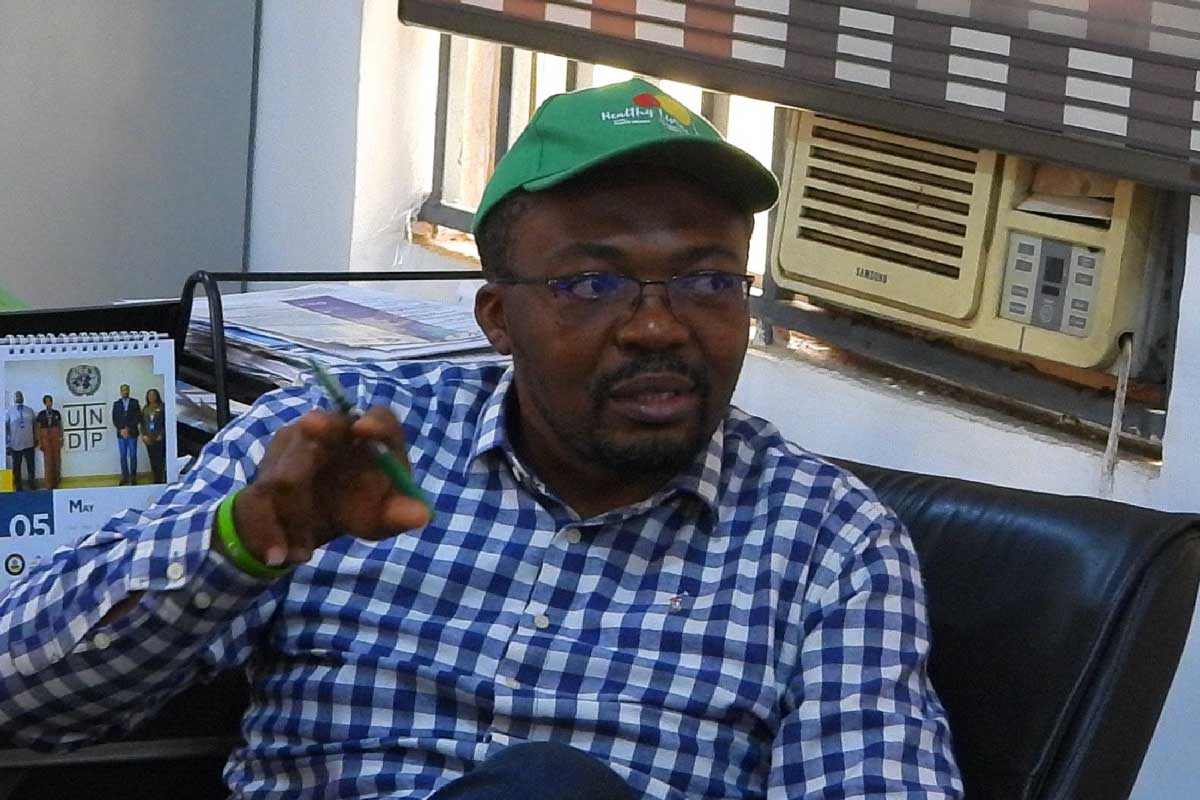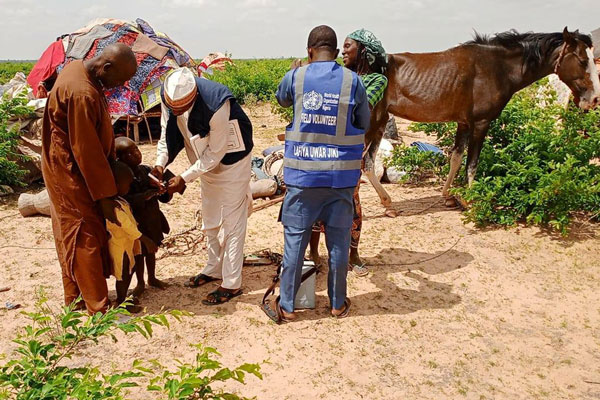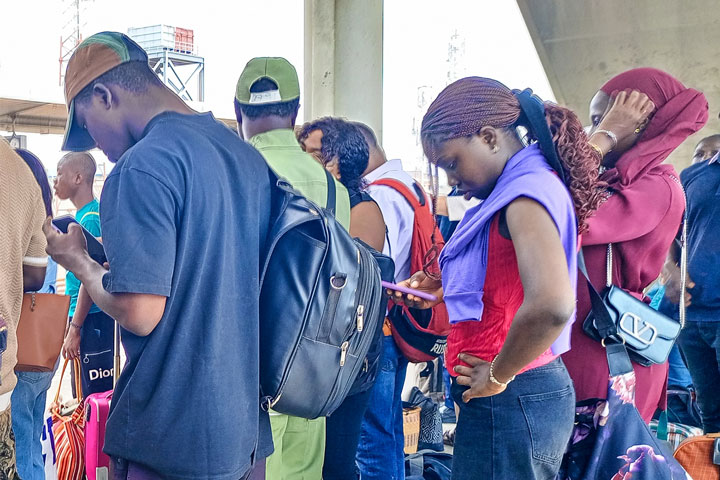Nigerian mums brave heat and stock-outs to get rotavirus vaccine
Rotavirus jabs used to cost Nigerians an often unaffordable US$13 a dose. Now available for free, they are an opportunity many mothers refuse to miss out on.
- 15 November 2023
- 7 min read
- by Jesusegun Alagbe
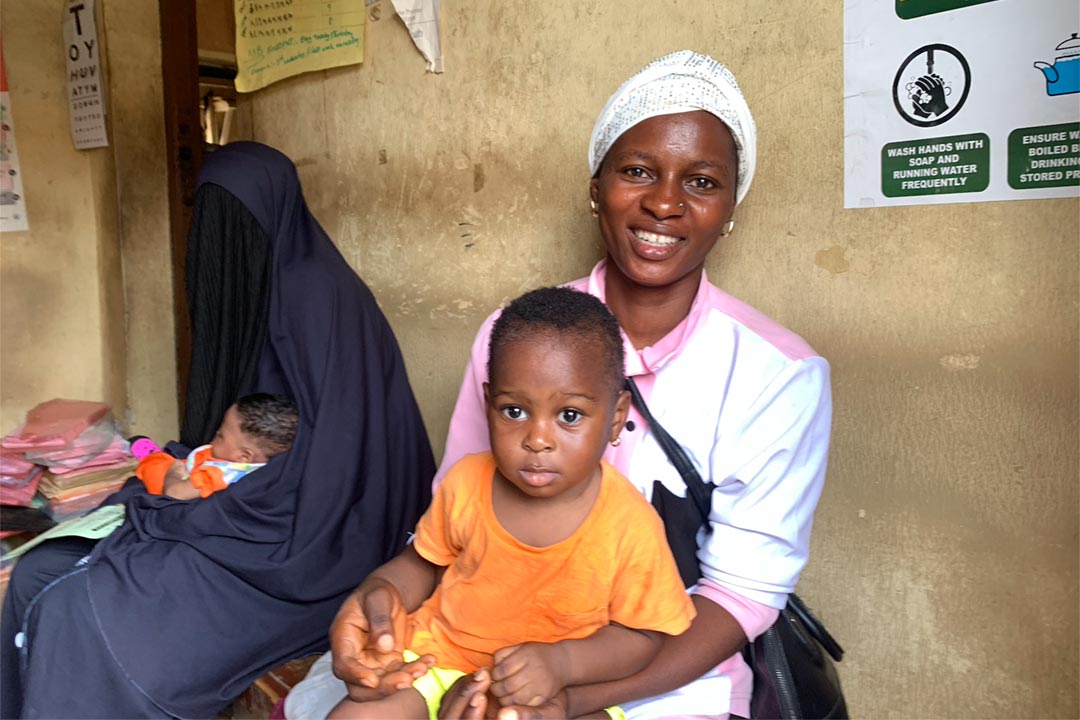
On a recent Tuesday morning, the sun bright and hot, a crowd of mothers gathered on the premises of the Mowe Health Centre in Nigeria's Ogun state.
The clinic building is tucked in among the stalls of a busy food market, and despite the heat mothers are queuing up, shielding their babies from the sun with cloths or umbrellas.
It's vaccination day – an investment in their children's future that is evidently worth an uncomfortable wait.
“When children, especially those below the age of five, fall sick, it [can] stunt their growth and affect their brain development. We don’t want this for our children – so they can realise their full potential.”
– Dr Kunle Ashimi, Chairman of the Nigerian Medical Association, Ogun State chapter
A little over a year ago, the roster of childhood vaccines provided in Nigeria at public clinics like Mowe expanded to include the rotavirus vaccine, which protects children against deadly bouts of diarrhoeal disease.
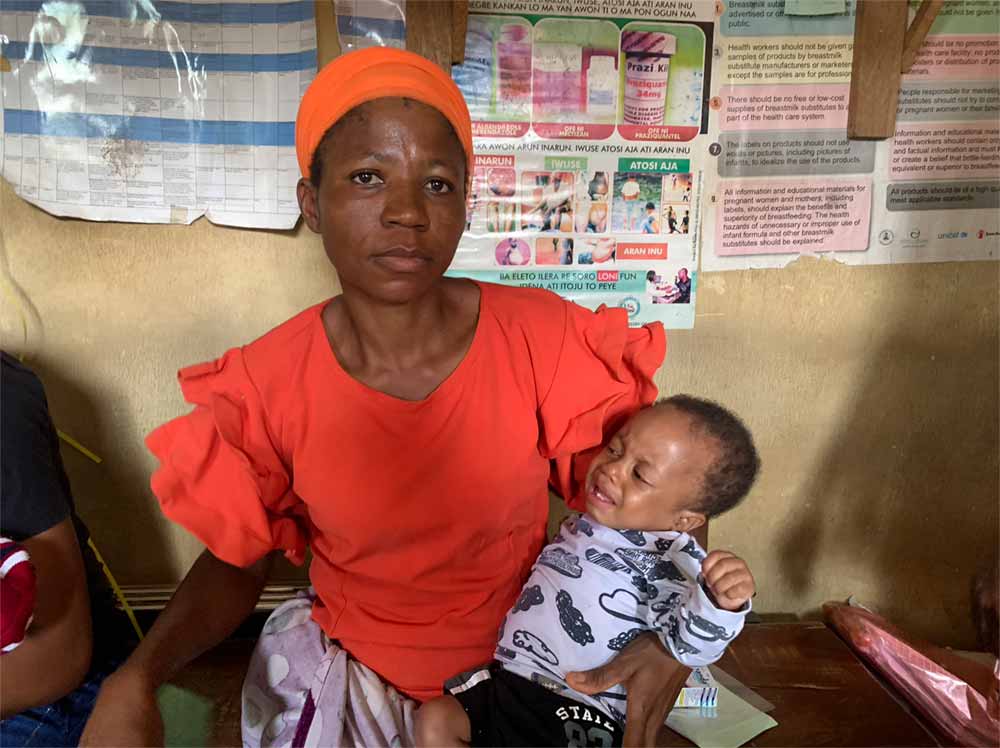
Credit: Jesusegun Alagbe
"Nobody needed to cajole or force me to bring my baby for the rotavirus vaccine because right from time, I always knew the importance of routine vaccines for children," Balikis Ibrahim, mother of one-year-old Moridiya, told VaccinesWork.
"At the Mowe Health Centre, we have been given adequate orientation by the health workers. Because I take my child's immunisation with seriousness, she does not fall sick unnecessarily."
Diarrhoeal danger
According to the World Health Organization, rotaviruses are the leading cause of severe, dehydrating diarrhoea in children under five globally. WHO estimates that there are more than 25 million outpatient visits and more than 2 million hospitalisations attributable to rotavirus infections each year.
Sick individuals shed the virus in high concentrations in their stools and vomit, which then enables spread via the faecal-oral route. Unlike cholera, rotaviruses aren't easy to halt with clean water and good sanitation. However, the vaccines promise a protective efficacy of between 85 and 95%.
From unaffordable to free-of-charge
Until a year ago, in Nigeria – where more than 50,000 children under five are reported to die of diarrhoea annually – the rotavirus vaccine was only available at certain health care facilities and cost about 10,000 naira (US$ 13) per dose, unaffordable for many poor households.
"My advice for mothers who have yet to bring their babies for the rotavirus and other routine vaccines is to not hesitate to do so, as being collectively responsible will help to prevent disease outbreaks in our communities."
– Balikis Ibrahim, mother of Moridiya]
However, in August 2022, the federal government, through the National Primary Health Care Development Agency (NPHCDA), and with support from WHO, Gavi and partners, began rolling out the rotavirus vaccine for free.
Since then, the vaccine has been available to children at the ages of 6, 10 and 14 weeks, in line with WHO recommendations that rotavirus vaccines be considered a priority, particularly in regions like sub-Saharan Africa.
Ogun State – where significant outbreaks of diarrhoeal disease had been reported by local media in the recent past – introduced the rotavirus vaccine for babies in November 2022.
Dr Kunle Ashimi, Chairman of the Nigerian Medical Association, Ogun State chapter, said introducing the rotavirus vaccine into the routine immunisation schedule for children in Ogun State was a huge development, particularly for poor families.
"When children, especially those below the age of five, fall sick, it [can] stunt their growth and affect their brain development. We don't want this for our children – so they can realise their full potential," he said.
Balikis Ibrahim's daughter, Moridiya, was among the first set of babies to receive it last year.
"I thank the various international NGOs and the Ogun State government for providing free vaccines for our children. My advice for mothers who have yet to bring their babies for the rotavirus and other routine vaccines is to not hesitate to do so, as being collectively responsible will help to prevent disease outbreaks in our communities. I know mothers who fail to bring their children for routine jabs because they are busy. They should remember that without healthy children, their work may be in vain," Ibrahim said.
Have you read?
Mothers from other Ogun communities like Arepo, Magboro and Warewa told VaccinesWork that they are happy that the rotavirus vaccine is now free at the health centres in their locations.
“My son has been healthy since birth because I have never missed any [vaccines] of his RI schedule. He plays, eats and looks well. He has taken the rotavirus vaccine before, and I appreciate the government and the various NGOs for providing the vaccine free for our children.”
– Bola Isaac, mother of nine-month-old Praise.
"My son has been healthy since birth because I have never missed any [vaccines] of his RI schedule. He plays, eats and looks well. He has taken the rotavirus vaccine before, and I appreciate the government and the various NGOs for providing the vaccine free for our children," said Bola Isaac, mother of nine-month-old Praise.
Waiting in line
Unfortunately for mothers like Aishat Ibrahim and Agnes Isaac, their babies, both due for rotavirus vaccination, would have to wait. Mowe Health Centre had a stock-out of the vaccine.
Oluwatobi Odunayo, Officer in Charge at Mowe Health Centre, reassured them that their children would yet receive their due dose, and expressed hope that the vaccine would be available soon.
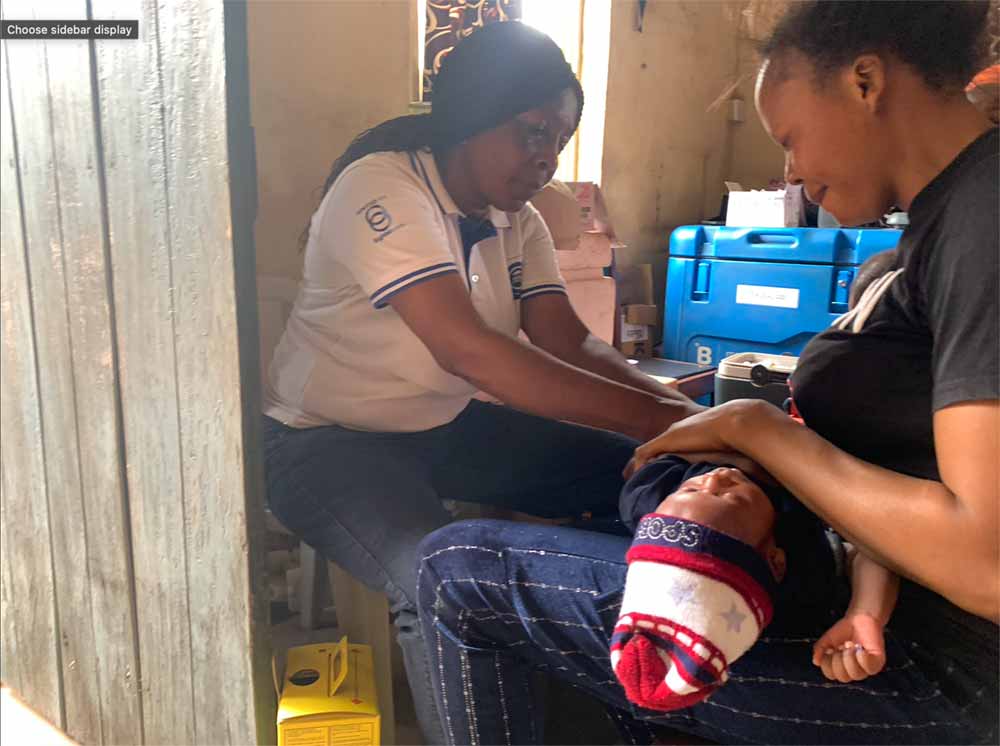
Credit: Jesusegun Alagbe
"We have been enlightening mothers about the importance of giving their babies the rotavirus vaccine as well as other routine vaccines and the talks have paid off. For the past year since the rotavirus vaccine was introduced into the RI schedule, we have been administering it to babies. It's been unavailable for two months," Odunayo said, speaking in October, "but once it is available again, we will inform all the mothers to bring their children for the jab. We have their children's immunisation cards, which contain their phone numbers for this purpose."
Taking vaccination seriously
Oluwasegun Adekoya, the Deputy Local Immunisation Officer for Obafemi Owode Local Government Area in Ogun State, said the temporary vaccine stock-out was unfortunate, but underscored that the state government is taking routine immunisation seriously.
"Before delivery, we usually give health talks to mothers, especially on why routine immunisation is important for their babies, and so far, mothers in this local government area and even in the state have been cooperating. As long as they keep cooperating, the war against rotavirus will be won," he said.
"I won’t hesitate to bring my daughter for the jab once it is available, because other vaccines she has taken so far have kept her safe.”
– Aishat Ibrahim, mother of Mumeenat
Ibrahim, meantime, said she would hang tight, and that she looked forward to when the vaccine would be available again.
"The introduction of the rotavirus vaccine is a good development for our children. We have been told it helps to prevent diarrhoea. I am told it's unavailable now, but I won't hesitate to bring my daughter for the jab once it is available, because other vaccines she has taken so far have kept her safe," Ibrahim, mother of infant Mumeenat said.
Isaac echoed her. "So far, my experience with bringing my son for routine immunisation has been good. The vaccines keep him from falling sick and I will continue to do my best not to make him miss his RI schedules," she said.
Bumpy supply
But the stock-out at Mowe Health Centre is far from isolated, and disrupted supply carries public health risk, explained Dr Surajudeen Olayinka, the State Immunisation Officer for Ogun Stats. Vaccine shortfalls – the wasted time and effort of a fruitless health clinic visit – can be off-putting for parents.
"The rotavirus vaccine is very good for our children. It gives little or no side effect. But the unfortunate situation we are experiencing is that it is not readily available. We have been having stock-outs, particularly this year. Sometimes the vaccine will be available and other times it will not. In situations like this, it discourages mothers from bringing their children for immunisation," he told VaccinesWork.
Although Olayinka could not readily provide data on the number of rotavirus vaccine doses administered so far in Ogun State against targets, he said "many" babies have so far benefitted from the vaccination.

